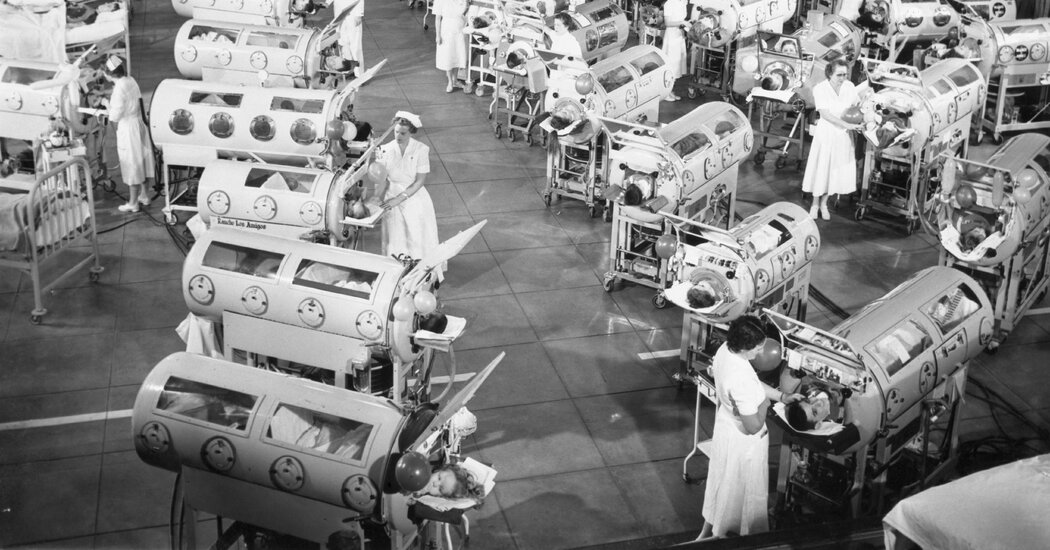Robert F. Kennedy Jr. began a tour of Capitol Hill this week to pay courtesy calls on senators who will vote on his nomination to be health secretary and to calm concerns that he would limit access to vaccines, especially for polio. “I’m all for the polio vaccine,” Mr. Kennedy said to a throng of reporters on Monday.
President-elect Donald J. Trump also sought to head off inevitable questions.
“You’re not going to lose the polio vaccine,” Mr. Trump declared during a news conference on Monday. “That’s not going to happen.”
But a New York Times review of Mr. Kennedy’s public comments over the past several years shows that he has consistently expressed views about the polio vaccine that are at odds with the medical consensus. For example, he has suggested that after the vaccine was first introduced, it might have caused a wave of cancers “that killed many, many, many, many, many more people than polio ever did.” And he has said the idea that the vaccine resulted in a drastic decline in polio cases is “a mythology” that is “just not true.”
His opinions on the polio vaccine have come under scrutiny since an article in The New York Times reported on Friday that Aaron Siri, a lawyer who is advising Mr. Kennedy during the transition, had filed petitions on behalf of a nonprofit to revoke federal approval of the standalone polio vaccine, known as IPOL, and to pause distribution of 13 other shots, some of which include polio immunization.
Mr. Kennedy’s spokeswoman, Katie Miller, also weighed in Monday in an email message: “Mr. Kennedy believes the polio vaccine should be available to the public and thoroughly and properly studied.”
Here is an analysis of some of Mr. Kennedy’s statements about the polio vaccine.
On the polio vaccine’s effectiveness
On a podcast posted on July 6, 2023, with the computer scientist Lex Fridman, Mr. Kennedy said that “there’s no vaccine that is, you know, safe and effective,” a statement he later walked back. Mr. Fridman challenged him: “Those are big words. What about polio?”
